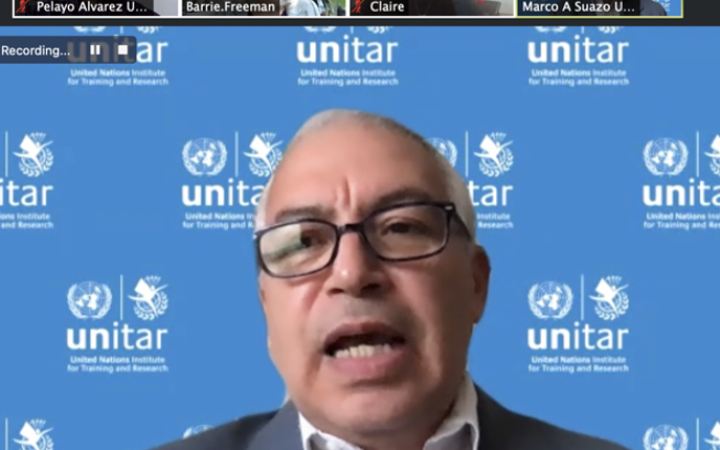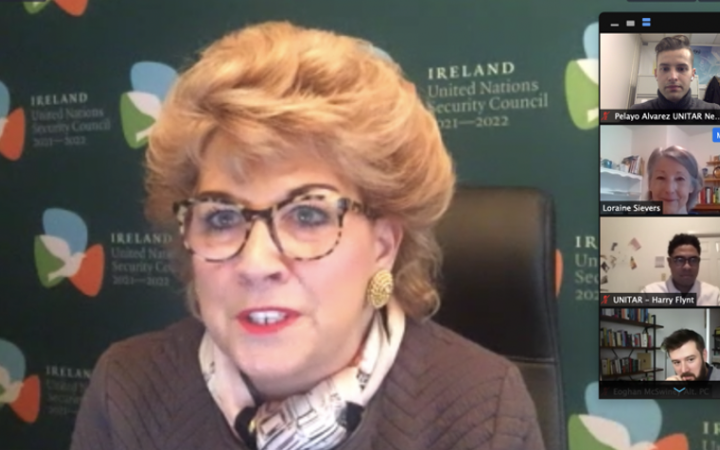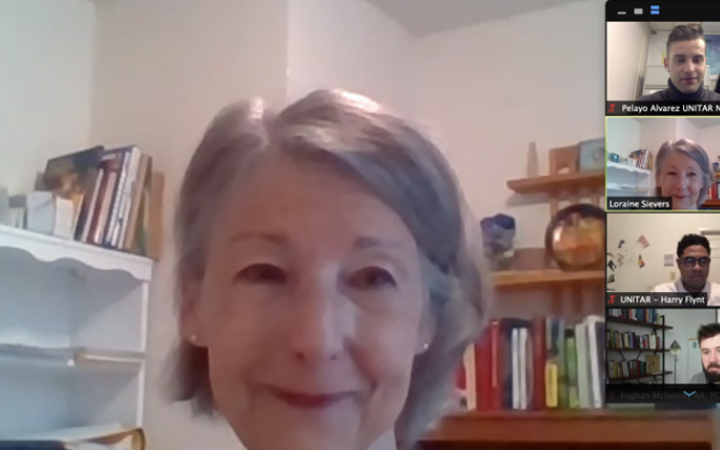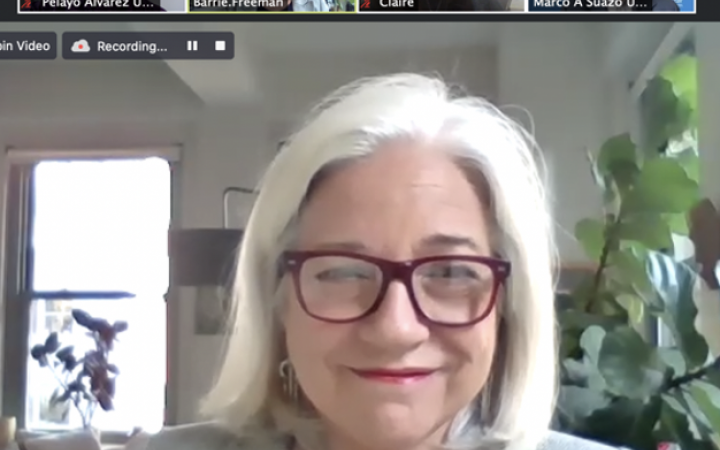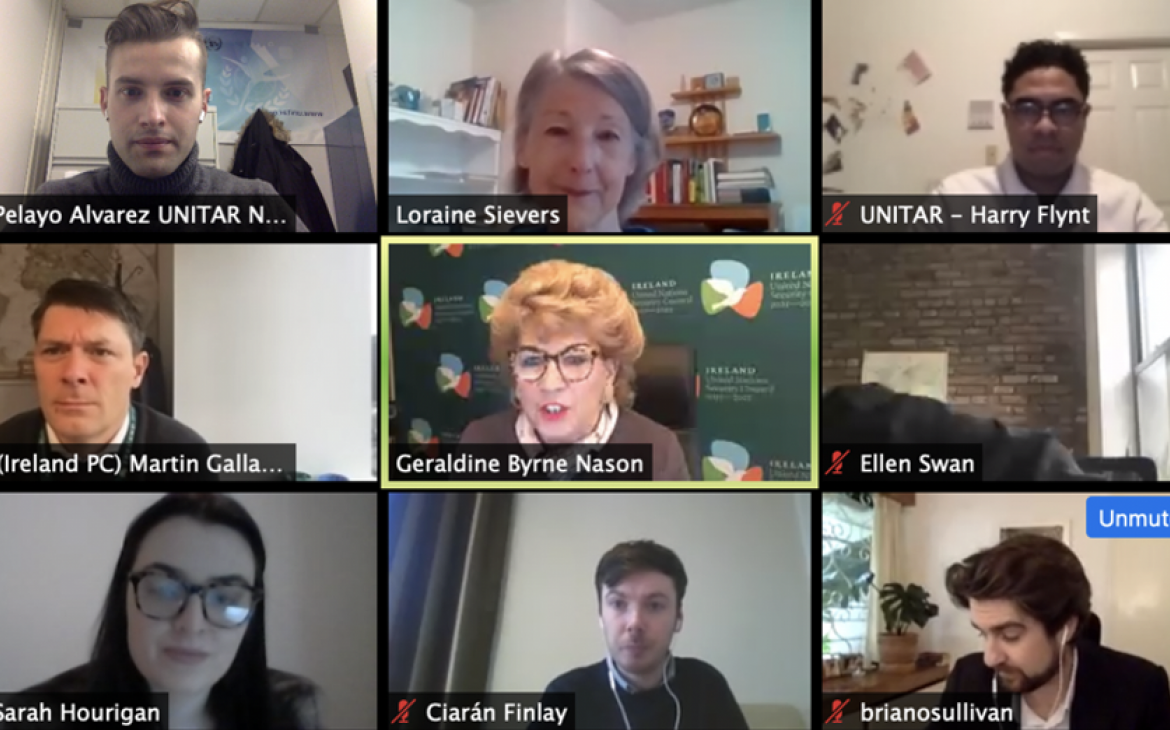7-11 December 2020, New York, USA (Virtual) - The United Nations Institute for Training and Research (UNITAR) New York Office delivered five separate training sessions on Security Council related issues for the Irish delegates. Ireland was elected as a member of the Security Council in June 2020 by the members of the General Assembly along with Mexico, Norway, India, and Kenya. Ireland will serve a two-year term in the Security Council, starting 1 January 2021. UNITAR has thus far completed its security council training series for all the delegates from all the newly elected Member States. The training was attended by 22 participants from the Mission of Ireland to the United Nations.
On Monday 7 December, the training started with a warm welcome remark and introduction of the course delivered by Mr. Pelayo Alvarez, the programme coordinator of the UNITAR New York office. He encouraged the delegates to propose questions, and to make use of this opportunity to discuss intriguing topics with the instructor. The Permanent Representative of Ireland, H.E. Ms. Geraldine Byrne Nason expressed her excitement for the following session, and introduced the UNITAR instructor Ms. Loraine Sievers, the former Chief of the Security Council Secretariat Branch and co-author of The Procedure of the UN Security Council opened series with her first session Introduction to Council Working Methods. The session then continued with an hour-long introductory session on the working methods of the Security Council. Ms. Sievers went over the foundations of the working methods, the important role of agenda item formulation during the three-hour session, and closed her first day with several studies. The afternoon session was led by Dr. Angel Angelov, the UNITAR facilitator and a Bulgarian diplomat. He presented an overlook on the role of the Security Council in the UN System. He broke down the structure of the Security Council and explained its sitting distribution.
The second day’s focus was on the formal meetings. Ms. Sievers covered every aspect of the conduct of formal meetings which included the participation of both members, individuals and non-Council members, meeting adoptions, meeting records, and different settings of formal meetings such as public and private sessions. Given the current situation, Ms. Sievers also debunked the working methods facing the challenges from pandemic.
The third day started with a presentation from Mr. Bojan Stefanovic, the Political Affairs Officer from the Security Council Practices and Charter Research Branch on the work and the responsibilities for his department. Afterwards, following with what has left behind on the second day, the third day topic involved every aspect related to informal meeting formats. Ms. Sievers briefly went through the informal meeting formats, and then transitioned her session into working methods related to peacekeeping. As a part of the main missions of the United Nations, it is crucial to understand the working routine and the mandate renewals procedure for the peacekeeping mission. Afterwards, Ms. Sievers went over the documents created by council members to provide better examples on the drafting and the formatting of different types of documents.
Continuing with the content, Ms. Sievers carried on with the training for the fourth day. The fourth day of training predominately focused on documents both created and received by Council members. Ms. Sievers shared a lot of past examples on achieving agreements between Member States, and re-examined several historical documents. Ms. Sievers elaborated certain factors that will lead to a successful term on the Security Council in the second part of the half-day session.
The last day Mr. Marco A. Suazo, thanked the delegates for their continuous participation and introduced the training which consisted with four speakers sharing their insights on the presidency, the sanctions committees, the peacebuilding commission and the General Assembly. The first speaker, Ms. Barrie Freeman, the Deputy Head of the Peacebuilding Support Office (PBSO) provided an overview of the peacebuilding architecture, and explained how the Member States interact with the branch. Afterwards, Ms. Blanca Montejo, jumped continued with his session on relationship of the Security Council to the General Assembly in reference to his experience working as the Chief of the General Assembly Affairs Branch.
To facilitate the participants’ knowledge on their experience serving on the council, H.E. Mr. Karel Van Oosterom, the former Permanent Representative of the Netherlands to the United Nations shared his insights and some practical advice for navigating life while serving working on the Council matters.
Mr. Davey McNab, the Senior Political Affairs Officer from the Security Council Subsidiary Organs Branch explained the dynamics and the working method between the subsidiary organs and the main council. Last but not least, Mr. Pelayo Alvarez closed the session, thanking the participants for an interactive workshop and wishing them best of luck in their Security Council endeavors.
Mr. Marco Suazo ended the week-long training with a heartful closing remark to thank the participants for their active engagements, and for instructors’ detailed preparation. The delegates found the event incredibly helpful for them taking over the positions in the Security Council. UNITAR has thus far completed its security council training series for all the delegates from all the newly elected Member States.


